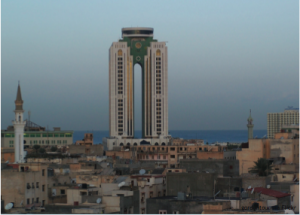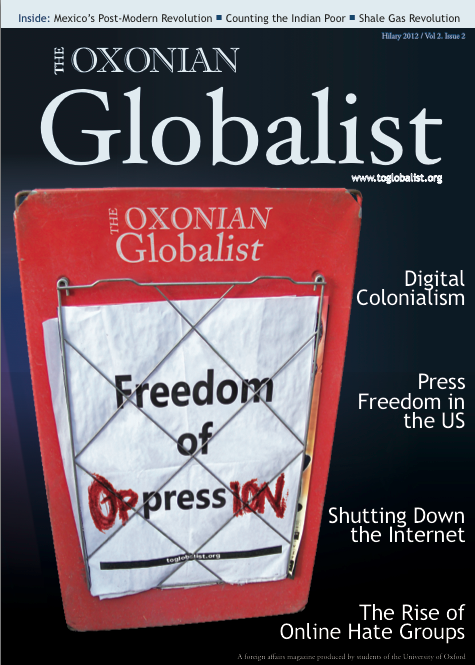
A view of the city centre of Tripoli, Libya's capital and largest city. Photo by gordontour via Flickr.
Muammar Gaddafi’s violent death on October 20th officially ended his 40 years of rule in Libya and propelled the country into an uncertain but hopeful time of change. One of the most immediately contentious issues in Libya is the role of religion in public education, serving as an indicator of Islam’s possible role in the new government. With a literacy rate of 87%, the highest in Northern Africa, Libya’s population is relatively well-educated. Indeed, since his 1969 coup, Gaddafi had instituted compulsory and free public education through high school.
Yet Gaddafi’s educational system was also hugely inconsistent and corrupt, as Dr. Feisel Krekshi discovered on his first day on the job as the new dean of Tripoli University. Aided by young students eager to return to school from the front lines of the rebellion, he discovered war prisoners, intelligence files on students, and a suspicious suite near Gaddafi’s favorite lecture hall containing a Jacuzzi, queen-size bed, and gynecological examining table. Krekshi is also determined to clean the corruption and ineffective teaching from the university, describing the faculty as “90% contaminated” by Gaddafi’s Revolutionary Committees, which previously ran higher education in Libya. Indeed, Krekshi has vowed that “people who called us rats”, those who expressed opposition to the rebel forces, “can’t stay with us.” Some pro-Gaddafi professors have already fled following student protests.
Such vehement attempts to settle old scores have reached beyond the quad to the playgrounds of Tripoli as tensions between Gaddafi loyalists and revolutionaries resonate in their children. Gaddafi’s regime had attempted to insure loyalty through financial means, and many residents of impoverished neighbourhoods remained true to Gaddafi until given word of his death. According to Abdullah al-Ashtar, a local school official in Tripoli, Gaddafi’s loyalists of all ages must keep resentment towards revolutionaries “in their hearts” in order for Libya’s wounds to heal. It is a tall order for provoked students on the schoolyard, some of whom have refused to sing the new national anthem.
Unlike the ideological repression representative of Gaddafi’s era – students at Tripoli University were hanged for dissident beliefs in the 1980s – current leaders, such as the secular temporary Prime Minister Mahmoud Jabril, have promoted ideals of religious tolerance and moderation. Mustafa Abdul Jalil, chairman of the Transitional National Council, has called for a “united and not divided” Libyan people, without “any extremist ideology, on the right or the left.” Yet many individuals, including some able to show outward indications of faith in Islam for the first time in 40 years, have criticized Jabril’s temporary government for being too secular. In a speech in September, Jalil attempted to deny these claims of secularism, explaining his position in “seeking to establish a state government by law and welfare – and Sharia, Islamic law, should be the main source of law.”
As Libya moves forward into the first weeks and months of independence after Gaddafi’s death, the debate over secularism in education will continue to serve as a harbinger of future issues to be resolved in the new government. Mahmoud Shammam, spokesman for the Transitional National Council, has spoken of the government’s respect for “the right of people to express their views peacefully” in “the new Libya”, indicating an openness to discussion and a possible shift into a more tolerant model of Islamic government, striking a balance by offering more rights and opportunities to women and minorities while remaining under Sharia law.



